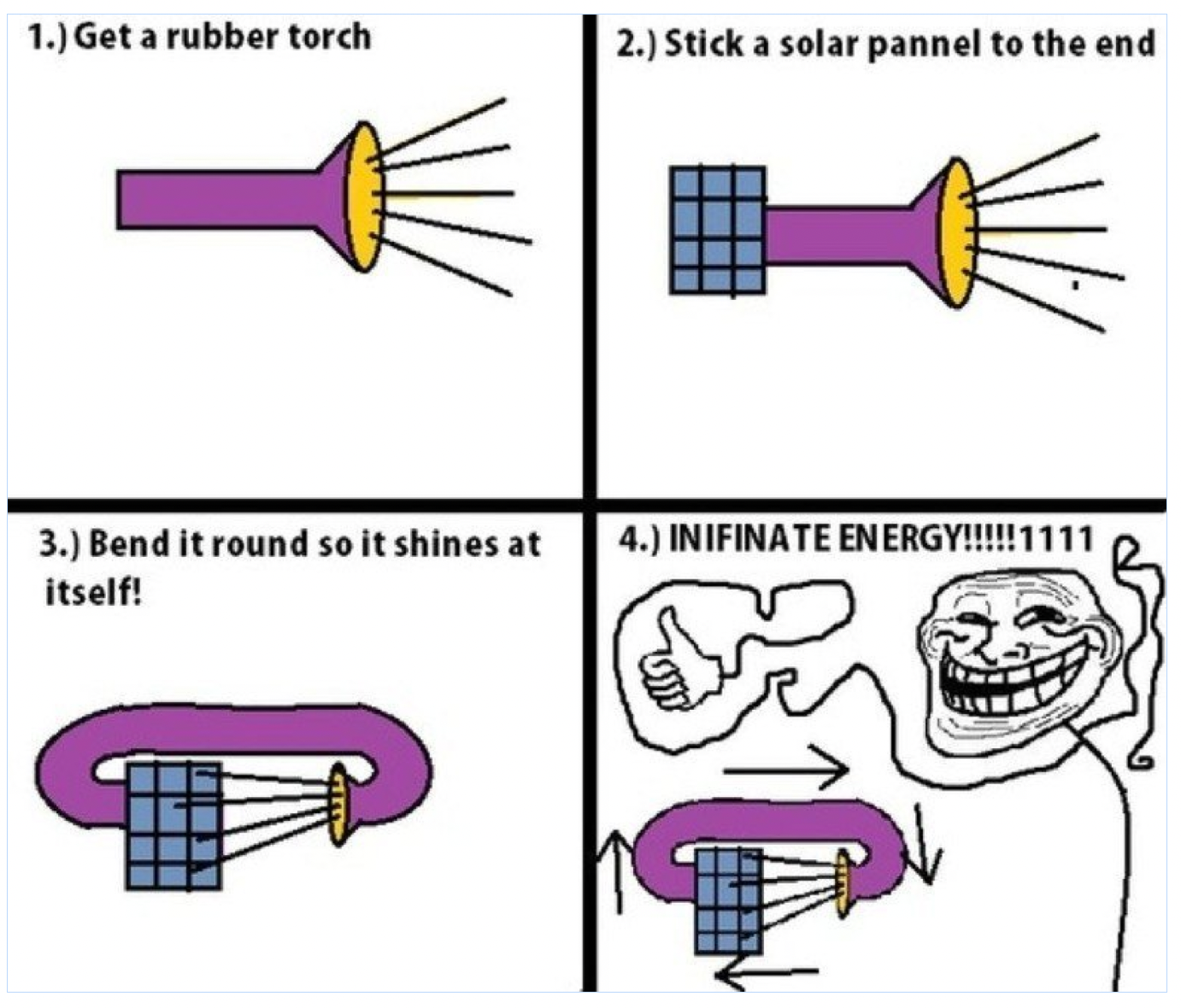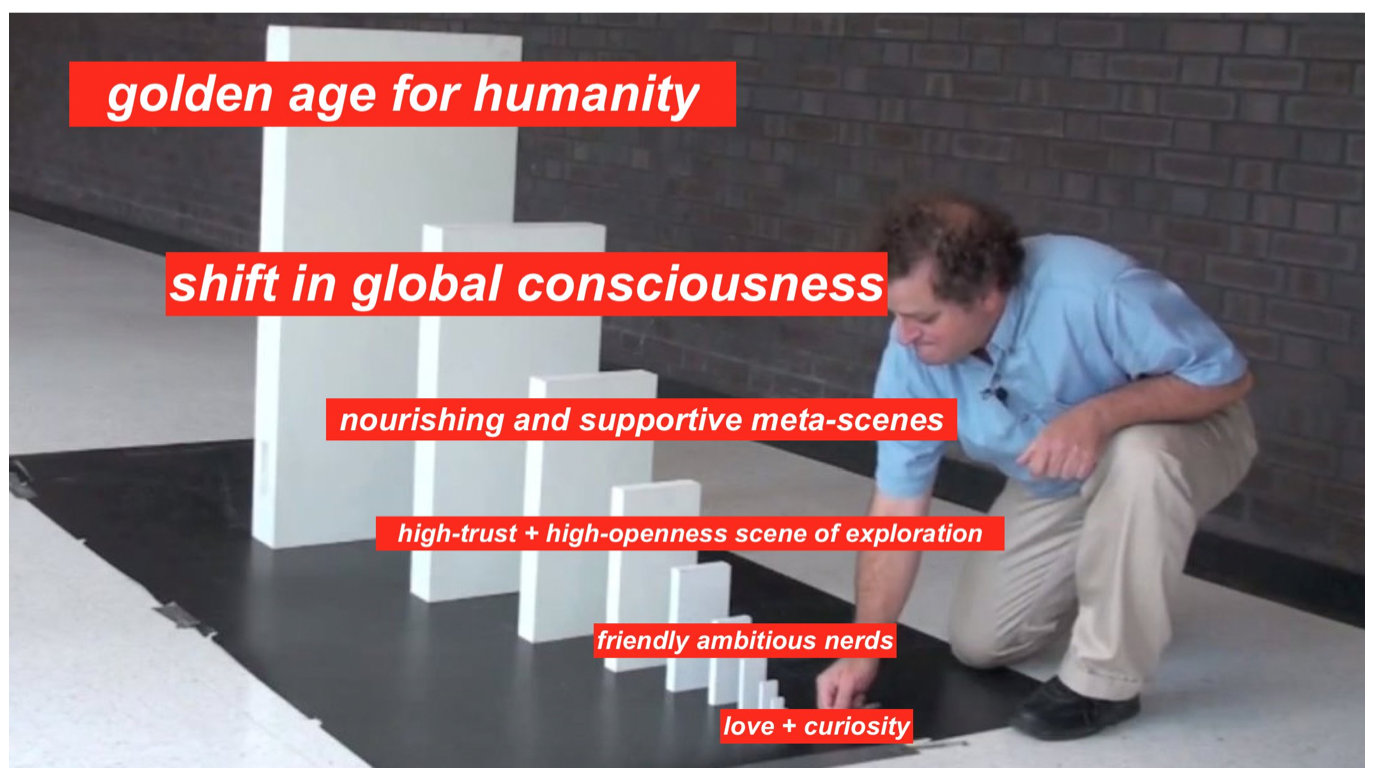Making money online by teaching people how to make money online
So you want to quit your job and make money online?
Oh, it looks like there are loads of people out there who want to make money online, why don’t I make products to teach them how! Buy my ebook teaching you how to teach people to teach people to teach people to…

Hmm.
I’m being unfair, of course — most people who make money online don’t do this. But it’s definitely an alluring trap if, at first, you’re short of other ideas.
I’m increasingly aware of the trap at the moment, because I’ve just done something that many people want to do: build a following online, create (at least one) scalable online product that people will pay for, and quit my corporate job.
Yay!
And in the process of doing all that, I have learned a great many things that others would benefit from knowing, whether it’s specific strategies and tactics for building those things around a job, or my own experiences in navigating tricky emotions and ‘general life stuff’. I even coach people who are doing this!
I certainly could teach many of the things I have learned — and, having done it and knowing how hard it is, I really want to — but at what point will people start accusing me of becoming someone who is caught up in that perpetual motion machine? Would it be a fair criticism, and what can I do to minimise it if it were?
Aside from repeatedly making clear that I have multiple other revenue streams that could support me on their own — that I wouldn’t have to make money like that, if I didn’t choose to — one powerful thing I can do is give away my knowledge for free. I’m already thinking about the kind of ‘content’ to put on my different ‘content channels’ (urgh). For example:
- These notebook posts are high velocity, low fidelity idea prototypes. Probably they will get read by very few people, or by only the people most committed to seeing what it’s like inside my brain.
- Thinking Out Loud, my main newsletter, is for sharing somewhat polished, but not necessarily complete, ideas that are usually based on my current experience, particularly those ideas that I think will be most valuable to others. Medium velocity and medium fidelity intermediate packets.
- The essays on my website will be the most polished and refined elucidation of well-developed ideas that I can bring together in one piece of writing: “my ultimate guide to” style prose on intellectually sophisticated topics. This is because there is no audience here (no RSS feed, etc). People will find these essays if they go looking, and that is already a high bar. Low velocity, high fidelity finished products.
- Then there is YouTube. Points 1-3 above are sort of a linear progression of idea refinement and testing, but YouTube doesn’t sit neatly in any of these. If I think about how I use YouTube, it’s often on in the background while I do other things, and it’s not that intellectually complex. As soon as something gets to the level of “I should probably take notes”, I switch to something else, because I’m rarely in a state of mind or context with YouTube were I would want to take notes (though of course I could dedicate time and attention for more sincere viewing of lectures).
Given all this, I would expect that YouTube would be a great place to do the “how to quit your job” style content. The ideas are easy to listen to in the background, they’re motivating, they can be repackaged and remixed easily, and they rarely require notes. It’s the kind of thing that can be absorbed over repeated viewing, and this is how I learn a great many things on YouTube — by osmosis.
The problem is that, long term, YouTube is likely to become my highest surface-area social platform. Once I get past 10k subscribers (this will probably happen some time in 2021, I am on 711 now), the algorithm will increasingly show me to new people who have never heard of me, and I’ll need to be increasingly legible to them. These people will not have been ‘onboarded’ into understanding who I am and what I’m about.
Also, pragmatically speaking, if I do want YouTube to become a meaningful revenue stream one day (and I do), then it makes sense to target the material there around topics that i) have a large and active audience on YouTube and ii) are valuable for advertisers.
The risk becomes that, for people who find me on YouTube, they won’t know that I also have an Alexander Technique course and do coaching and help run the Carbon Removal Centre and sell whatever else that isn’t “how to quit your job like I did” type content, and I will become easily stereotyped, and therefore ultimately misunderstood and easily dismissed.
I’m playing a long game here, and my long game is more to be heard saying important things than to make lots of money. At the same time, I will need to make enough money to remain enjoyably self-directed myself and — actually — getting more dissatisfied people out of jobs they are meh about and into a fully alive, self-directed state is also part of my long game (for reasons I will discuss another time).
Maybe, in writing this, my paradox has resolved itself.
I need to create a channel that isn’t just how to quit your job, but is actually / also how and why to create a life that unlocks within you your inherent creativity and playfulness, which I believe will lead to the best long term, shared outcomes. Seriously, this is how to fix climate change and a long list of social challenges. It’s the “golden age” stuff that Visa talks about.

Another way to phrase this is to transform Non-Player Characters into Player Characters. Which is not to say that everyone with a job is a NPC while everyone self-employed is a PC — it’s much more complex than that obviously, and this is a rich seam for further thinking.
This is a much more compelling vision, and certainly one I can orient much of my emerging creative output around. Cool